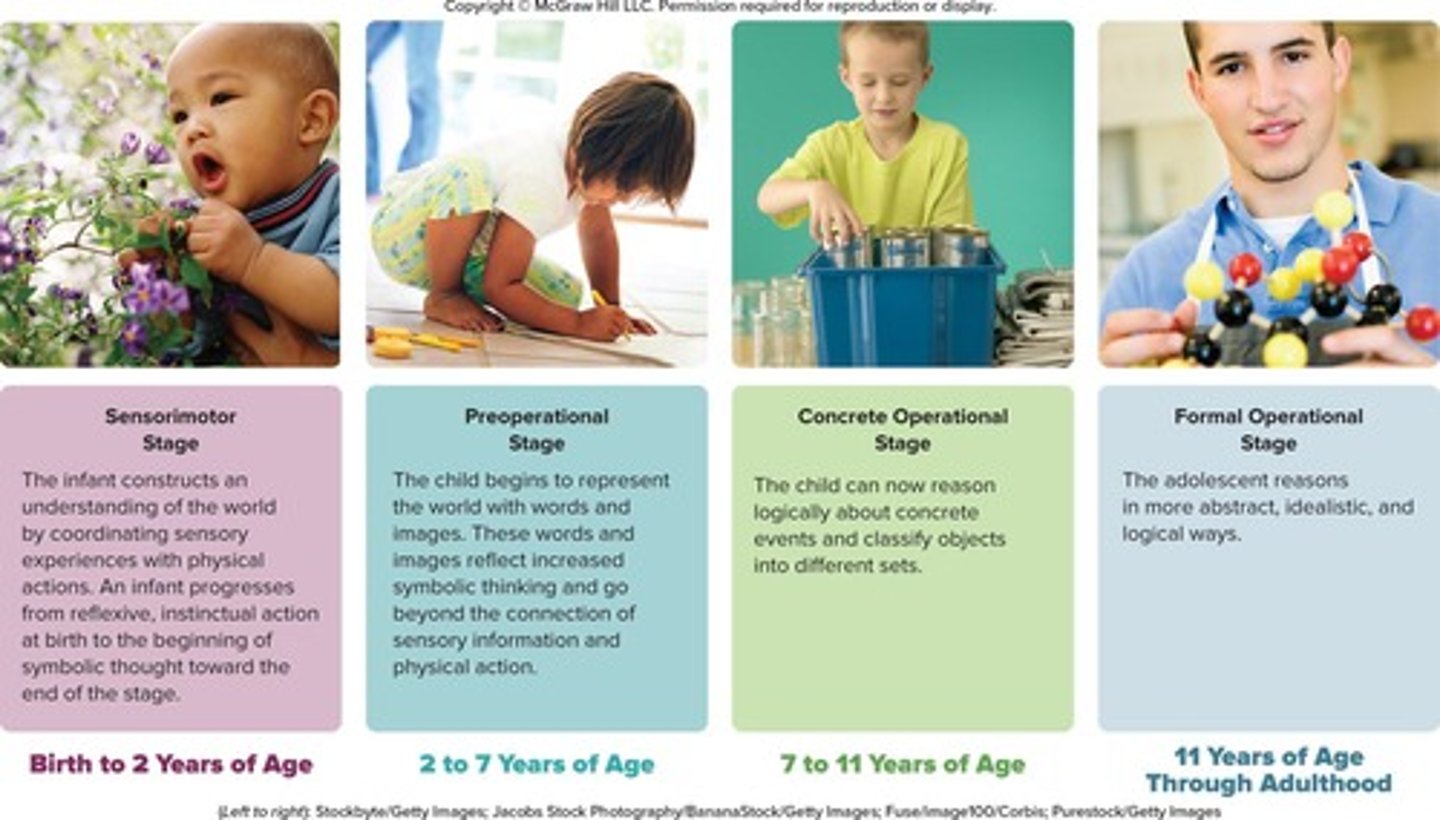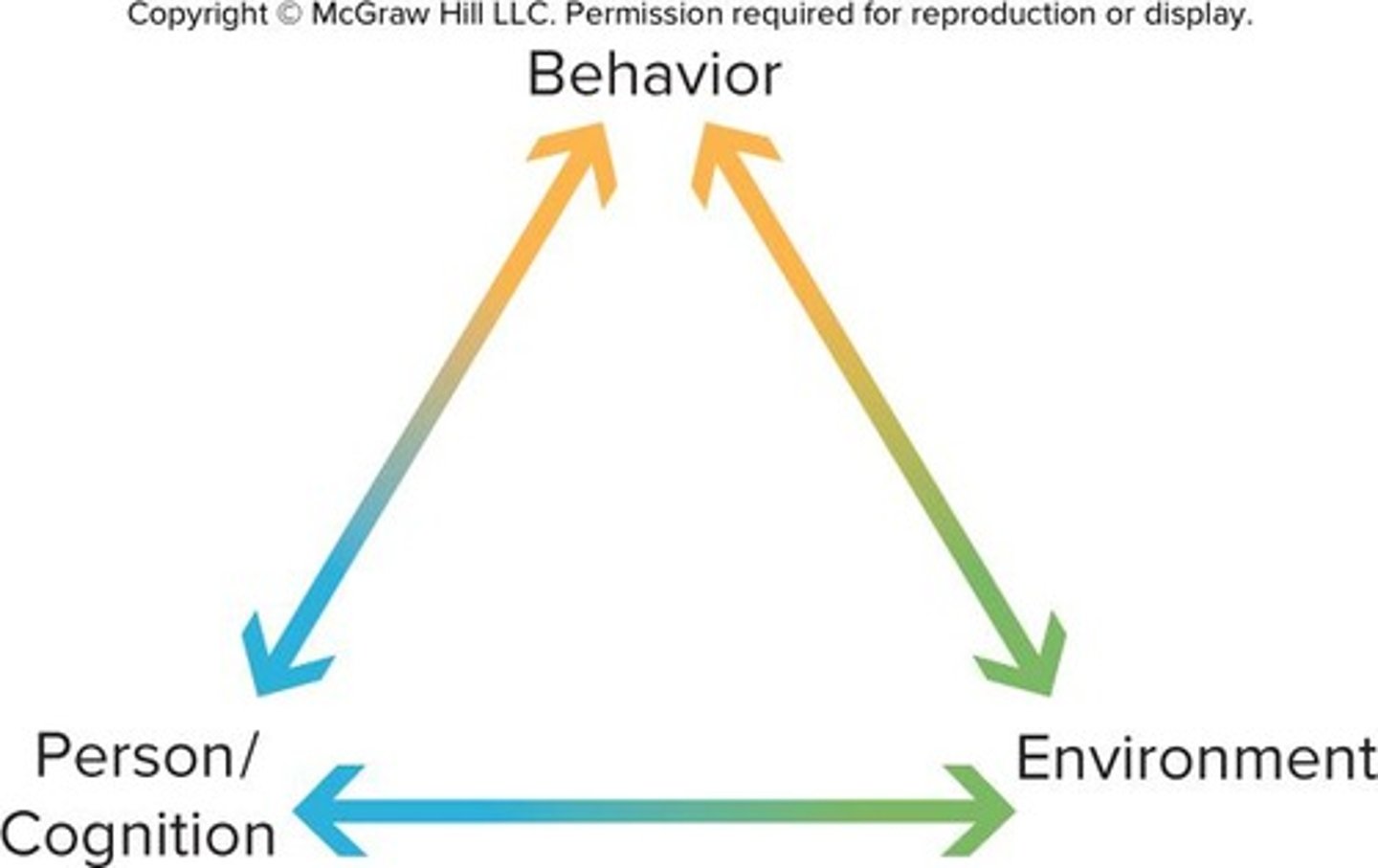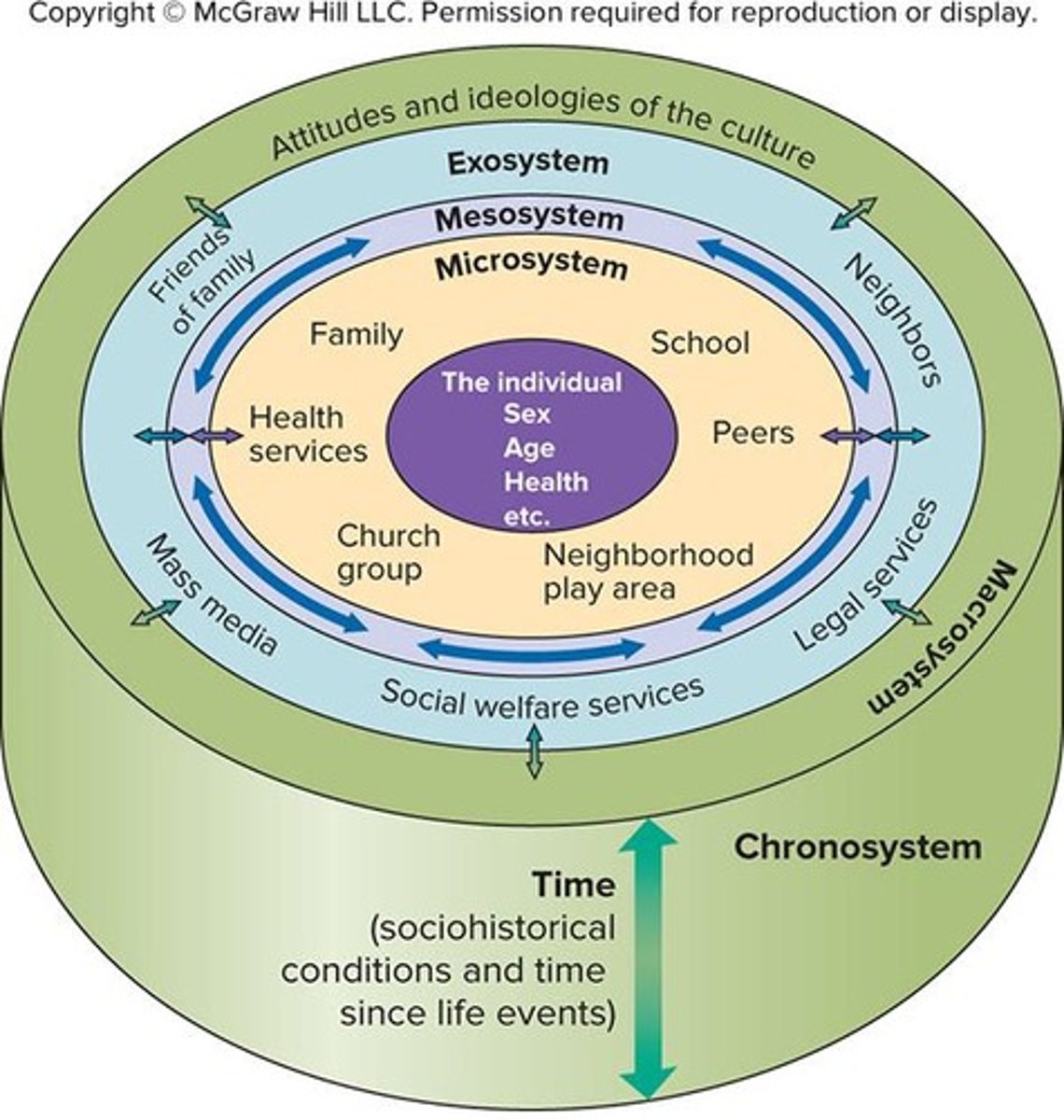Perspectives on Development: Psychoanalytic and Cognitive Theories
1/26
There's no tags or description
Looks like no tags are added yet.
Name | Mastery | Learn | Test | Matching | Spaced |
|---|
No study sessions yet.
27 Terms
Psychoanalytic Theories
Focus on unconscious influences and emotions in development.
Freud's Psychosexual Stages
Five stages determining adult personality through conflict resolution.
Fixation
Being locked in a psychosexual stage due to gratification issues.
Erikson's Theory
Social motivation drives behavior across eight psychosocial stages.
Psychosocial Stages
Eight key crises that must be resolved throughout life.
Cognitive Theories
Emphasize conscious thoughts and active understanding in development.
Piaget's Cognitive Development
Four stages where children construct world understanding actively.
Organization and Adaptation
Key processes in Piaget's cognitive development theory.
Concrete Operational Stage
Ages 7-11; logical reasoning about concrete events.

Formal Operational Stage
Ages 11+; abstract and idealistic reasoning develops.
Preoperational Stage
Ages 2-7; symbolic thinking begins with words and images.
Sensorimotor Stage
Birth-2 years; understanding through sensory experiences and actions.
Vygotsky's Sociocultural Theory
Cognitive development guided by culture and social interaction.
Information-Processing Theory
Gradual development through manipulation and monitoring of information.
Skinner's Operant Conditioning
Behavior shaped by rewards and punishments.
Bandura's Social Cognitive Theory
Behavior, cognition, and environment interact in development.

Imprinting
Rapid learning and attachment during a critical period.
John Bowlby
Studied attachment theory and its lifelong consequences.
Secure Attachment
Predicts optimal development throughout childhood and adulthood.
Ethological Theory
Behavior influenced by biology and critical/sensitive periods.
Bronfenbrenner's Ecological Theory
Development influenced by multiple environmental systems.

Microsystem
Immediate environment affecting individual development directly.
Mesosystem
Connections between different microsystems in a person's life.
Exosystem
Indirect environmental influences on an individual's development.
Macrosystem
Cultural and societal influences on development.
Chronosystem
Changes over time affecting development.
Eclectic Theoretical Orientation
Combines elements from various theories for understanding development.